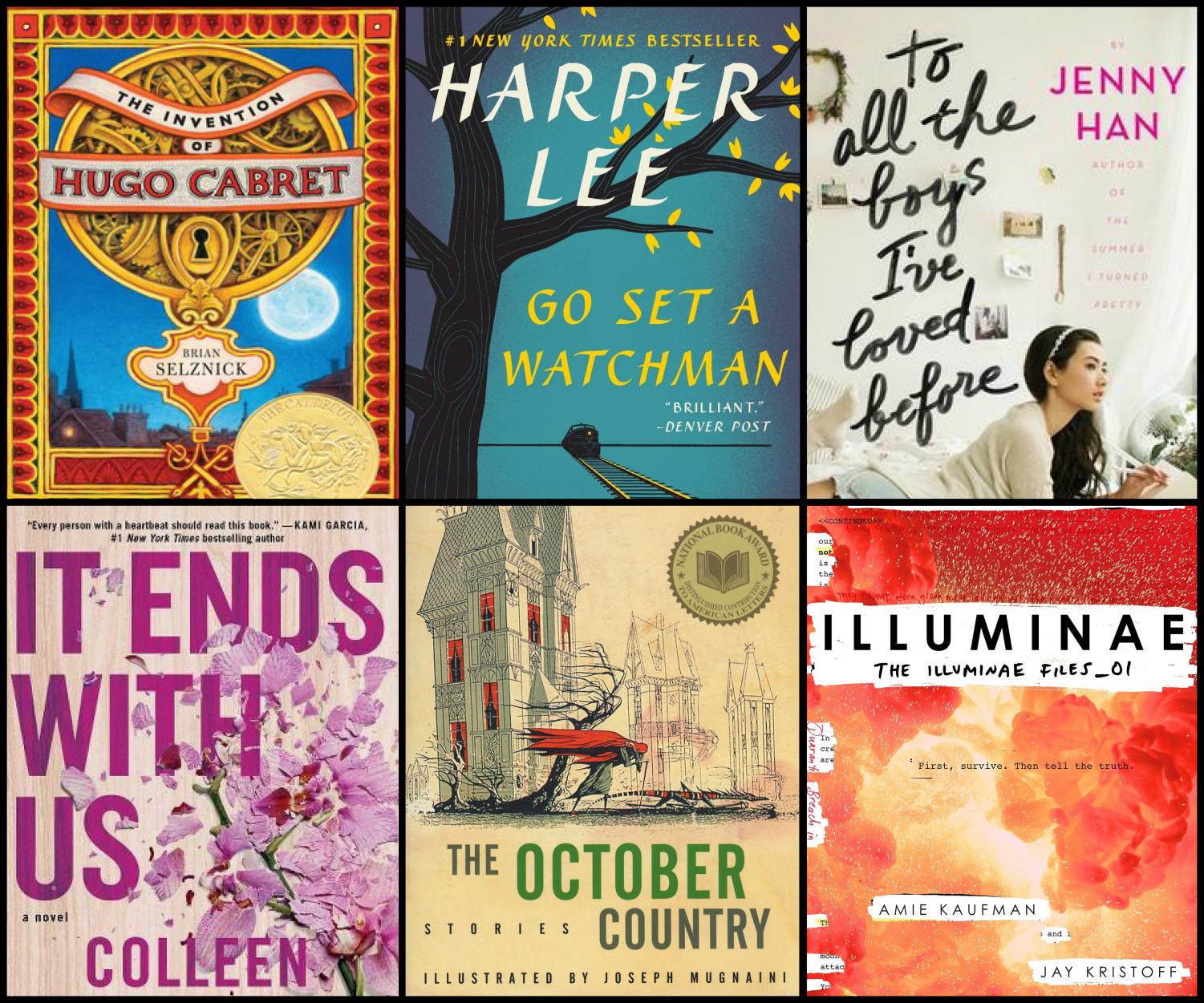If there was ever a time to return to reading for pleasure, it is now. If you need a place to start, check out these quarantine essentials, hand picked by our Arts and Entertainment staff.
“The Invention of Hugo Cabret” by Brian Selznick
For those less interested in wordy paragraphs, this beautifully illustrated graphic novel breaks norms, telling a story about an orphan in old Paris through page-large black and white pictures between bursts of text. With a twist ending, this book is certainly a page-turner, leaving readers wanting more. A Caldecott Medal award holder, there is no doubt that this book is a winner.
“To All the Boys I’ve Loved Before” (the trilogy) by Jenny Han
Popularized by the Netflix movie series, the New York Times bestselling book series is just as sweet and relatable. With its detail and surprising plot points, the trilogy is sure to become a classic with time. Though the movies are well done, the original viewpoints of characters give the story more depth, adding charming details to this widely adored modern-day romance.
“All The Light We Cannot See” by Anthony Doerr
Another story set in World War II Paris, this drama contains magic. It’s arguably historic, and poetry oozes out of the highly descriptive narration, sucking the reader into a world unlike anything they have experienced. Tragic and lighthearted, technical and flowery, the book concludes on a note of bittersweet despair. If you want to cry about a blind girl, a Nazi boy and a dying old man trying to save art and precious things in the midst of a global disaster—a global disaster could be triggering or cathartic, you choose—please read this book. It comes to a satisfying end, showing readers that blindness does not mean you cannot see clearly.
“The Illuminae Files” by Amie Kaufman and Jay Kristoff
If you are a fan of science fiction, space and dystopian societies, this is the book for you. “The Illuminae Files” is an addictive read, reeling its readers in with just the first few pages. With its exciting races through space, eerie artificial intelligence bots and captivating romance, you will be unable to put the story down. In addition, the way the book is written is intriguing—not as an ordinary novel, but rather as a collection of files that tell a story. This is not an average book for sure, and if you cannot get enough of the story, there are two sequels available, “Gemina” and “Obsidio,” that will keep you busy for a while.
“The October Country” by Ray Bradbury
Known by most for his famous novel “Fahrenheit 451,” Ray Bradbury has a seemingly endless number of works, as he wrote hundreds of short stories throughout his life. Readers who enjoy stories with thought-provoking, deeper meanings will enjoy “The October Country,” which is a collection of just a few of those short stories, each of which is real, raw and packed with imagination.
“Go Set a Watchman” by Harper Lee
Fans of the classic American novel “To Kill a Mockingbird” will want to look into reading “Go Set a Watchman.” Published in 2015, the book was originally advertised as a sequel to “To Kill a Mockingbird,” but is now recognized as Harper Lee’s first draft of her famous novel. Though there are many passages and themes reused in this story, “Go Set a Watchman” is a moving expansion on the characters readers already know and love. It takes a deeper look into the darker issues of the rural South during that time. Though the story has received mixed reviews, it is one worth looking into.
“It Ends With Us” by Colleen Hoover
More than just a typical romance story, Colleen Hoover’s hard-to-put-down novel is about a young woman from Maine who moves to Boston to start a business, catching the eye of a handsome neurosurgeon in the process. Inspired by real life events, Hoover unravels the complexities of an abusive relationship in this heart-wrenching novel. Fans of the book can also expect a movie adaptation in the near future, with “Jane the Virgin” star Justin Baldoni as director.
“12 Ways Your Phone Is Changing You” by Tony Reinke
If you want to take a break from fiction, this book addresses the Western world’s smartphone and screen time addiction, raising this question—do you control your phone, or does your phone control you? In less than 200 pages, “Desiring God” writer and non-profit journalist Tony Reinke breaks down the dangers of never being offline, all while providing tips and tricks on how smartphone users can be more intentional with technology.
“The Ruthless Elimination of Hurry” by John Mark Comer
In the same vein as “12 Ways Your Phone Is Changing You,” pastor and author John Mark Comer examines the “hustle culture” embedded in society. A firm believer that love and hurry are incompatible, Comer journeys through passages of Scripture and points readers back to the necessity of slowing down in an age where busyness is a badge of honor.










